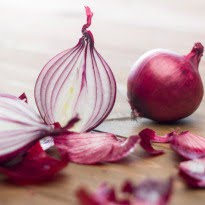You’ve heard all about the health benefits of Greek yogurt. And maybe you’ve tried (even thicker) Icelandic yogurt, also known as skyr. But did you know there’s such a thing as French yogurt?
Yoplait has announced it will launch a line of French-style yogurts, called Oui, in July. So how is French yogurt different from Greek and Icelandic—and which is the healthiest yogurt of them all?
According to General Mills, the Oui yogurt recipe is based on the way yogurt was made in French farmhouses more than a century ago. While most commercial yogurt is cultured in large batches and then poured into individual cups, Oui yogurt is cultured in individual (and recyclable or reusable) glass pots. If you’ve been to France you’ve likely seen this type of yogurt in stores. And if you’re a big fan of yogurt, you may have come across instructions on how to make your own on sites like Chowhound.
The ingredients are nice and simple: just whole milk, yogurt cultures, cane sugar, and fruit. And the plain variety contains only the first two ingredients. So in other words, Oui yogurt lacks the additives found in traditional Yoplait yogurts, such as gelatin, modified corn starch, preservatives, and artificial sweetener.
Each jar of the plain variety of Oui plain contains 130 calories, 8 grams of fat, 8 grams of carbohydrate, 5 grams of protein, 4% of the Daily Value (DV) for vitamin A, and 15% of the DV for calcium. The flavored varieties are a bit higher in calories and carbs. Blueberry, for example has 160 calories and 19 grams of carbohydrates.
RELATED: 17 High-Protein Snacks You Can Eat on the Go
So should you switch from Greek or skyr to French?
Oui is lower in protein than both Greek and Icelandic yogurts made with similar simple ingredients. For example, a single-serve container of Stonyfield’s plain whole milk Greek yogurt packs 14 grams of protein—that’s 9 more grams than Oui! And a single-serve container of Siggi’s whole milk blueberry skyr delivers 12 grams of protein.
What’s more, Oui yogurt isn’t organic or grass-fed. Organic milk provides a greater amount of iodine and certain vitamins and antioxidants, according to researchers from Newcastle University in the UK. And milk from grass-fed cows contains more anti-inflammatory omega-3 fatty acids, as well as another beneficial fat called CLA (conjugated linoleic acid), which is thought to boost immunity, lower inflammation, protect the heart, and even help with weight loss.
The bottom line is that I will advise my clients to stick with organic, grass-fed Greek yogurt or skyr. While the adorable Oui jars may be tempting, here’s an expert tip: You can buy French yogurt glasses on Etsy, and fill them with anything you like.
Cynthia Sass is Health’s contributing nutrition editor, a New York Times best-selling author, and a consultant for the New York Yankees.










